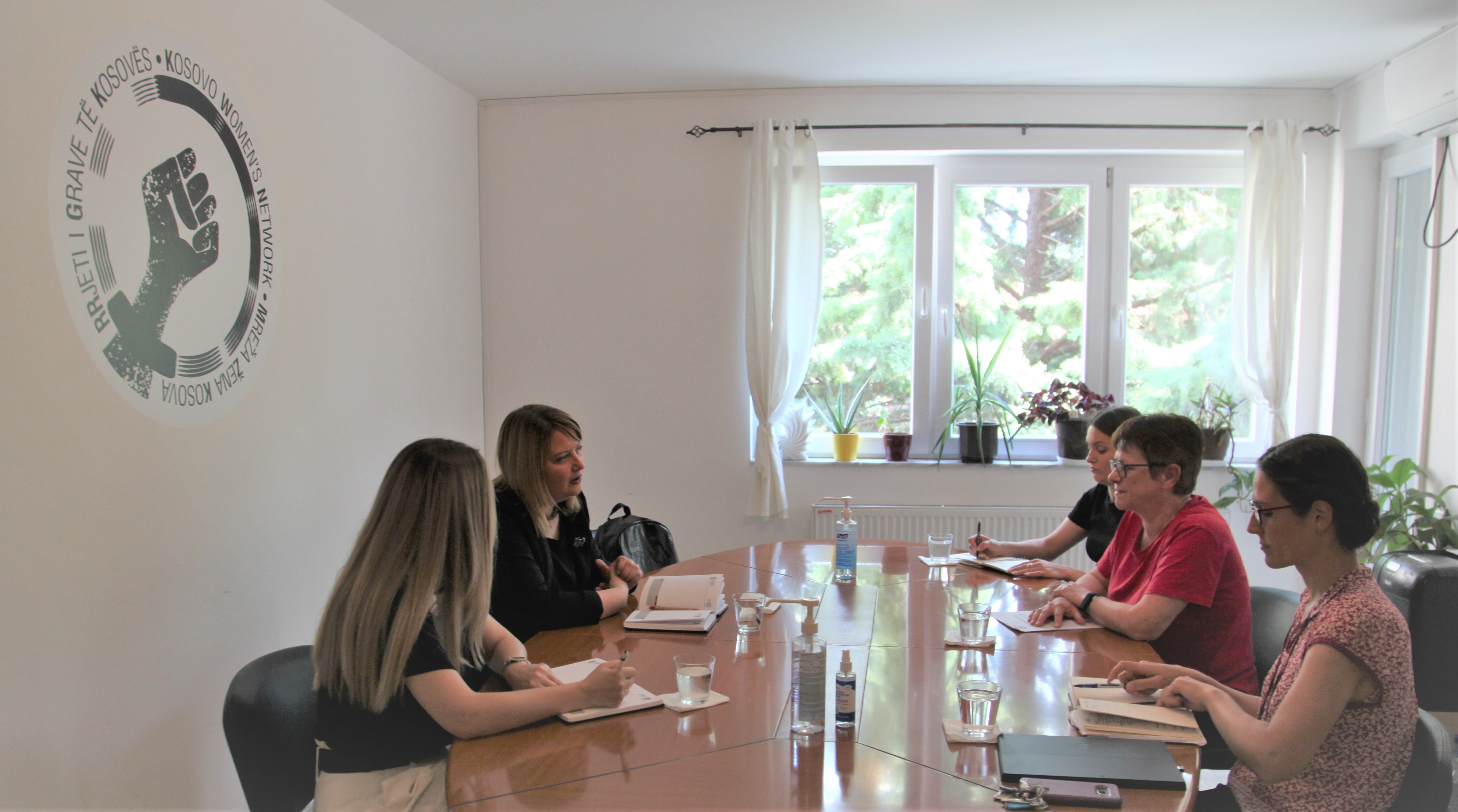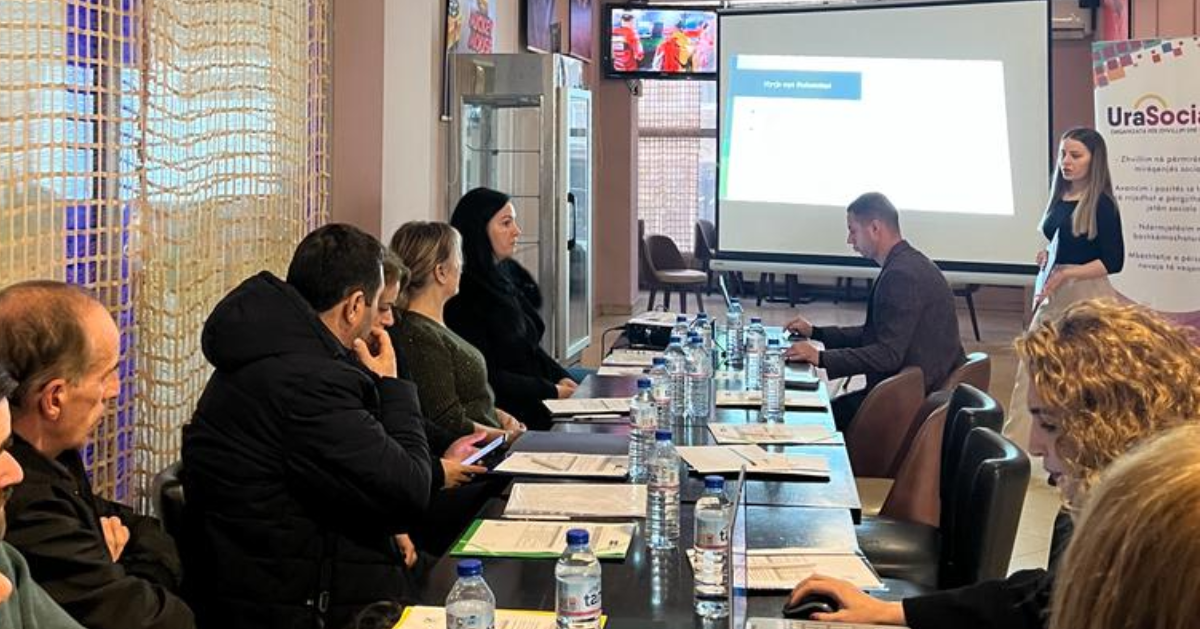On July 23, the Executive Director of the Kosovo Women’s Network (KWN), Igballe Rogova, Program Director and Lead Researcher of KWN, Nicole Farnsworth, and Gjylymser Nallbani, KWN Project Assistant, met with the Deputy Minister of Education, Science, Technology and Innovation (MESTI) Edona Maloku-Bërdynaj and the Administrative Assistant to the Deputy Minister, Gerta Ymeri.
During this meeting they discussed the findings and recommendations of the research report “From Laws to Action”, launched in April this year, in order to improve cooperation amongst institutions to prevent gender-based violence.
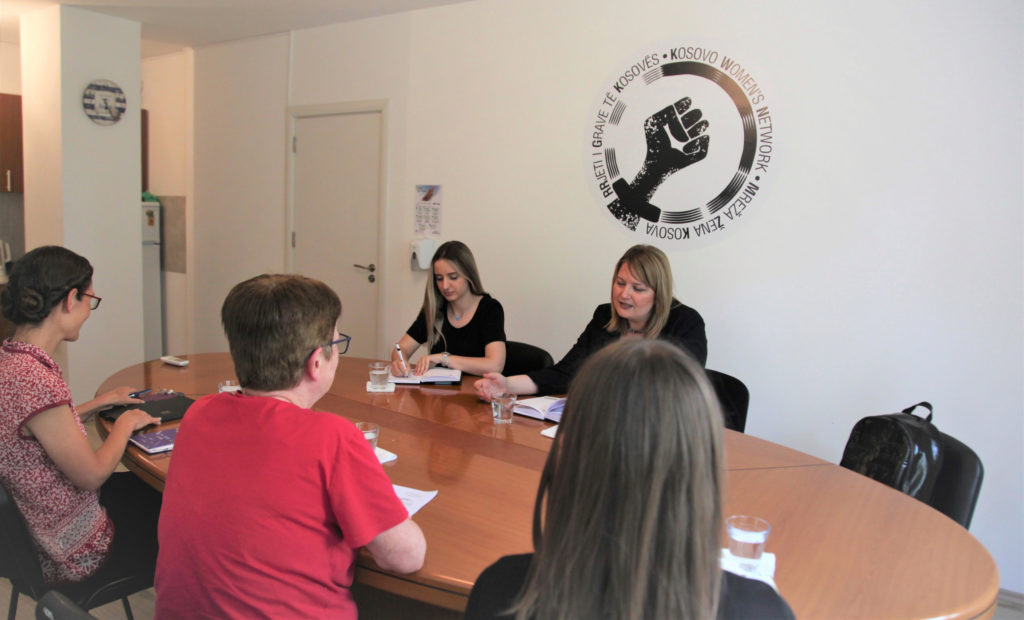
Special emphasis was placed on educational curricula in the country, and the importance of monitoring the quality of teaching in preventing the reinforced traditional gender stereotypes and roles.
“It is very important to establish cooperation with MESTI. Together we can work towards creating an environment of monitoring the quality of gender perspective teaching in schools in Kosovo” said Igballe Rogova, Executive Director, KWN during this meeting.
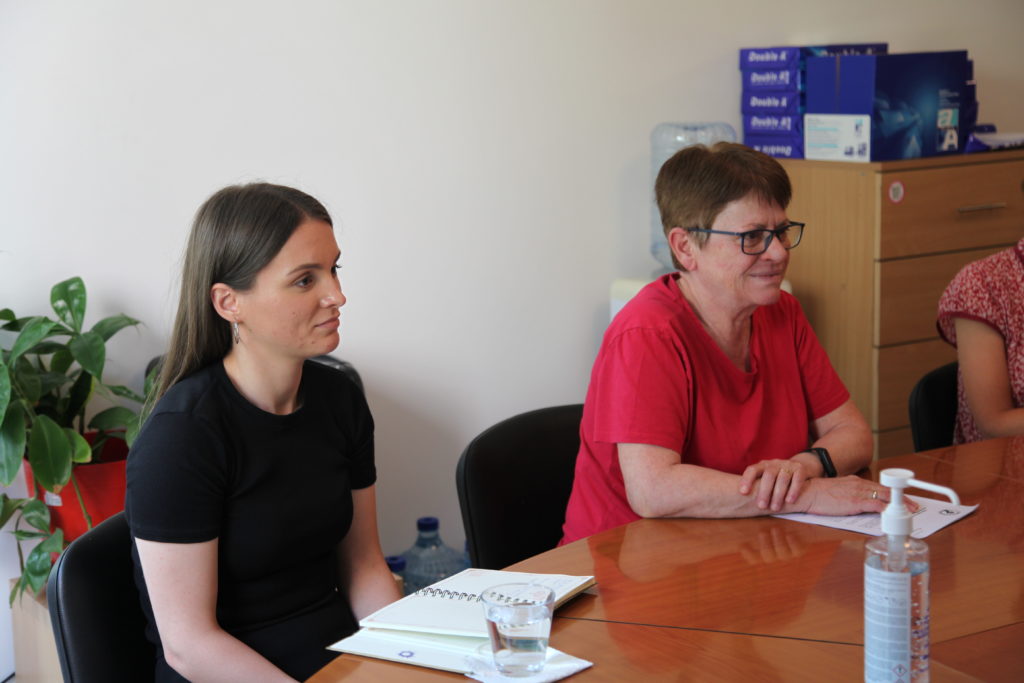
Meanwhile, the Deputy Minister of Education, Edona Maloku-Bërdynaj, expressed her gratitude for KWN’s work over the years. She added that MESTI is pleased to cooperate in preventing gender-based violence and raising awareness of its forms.
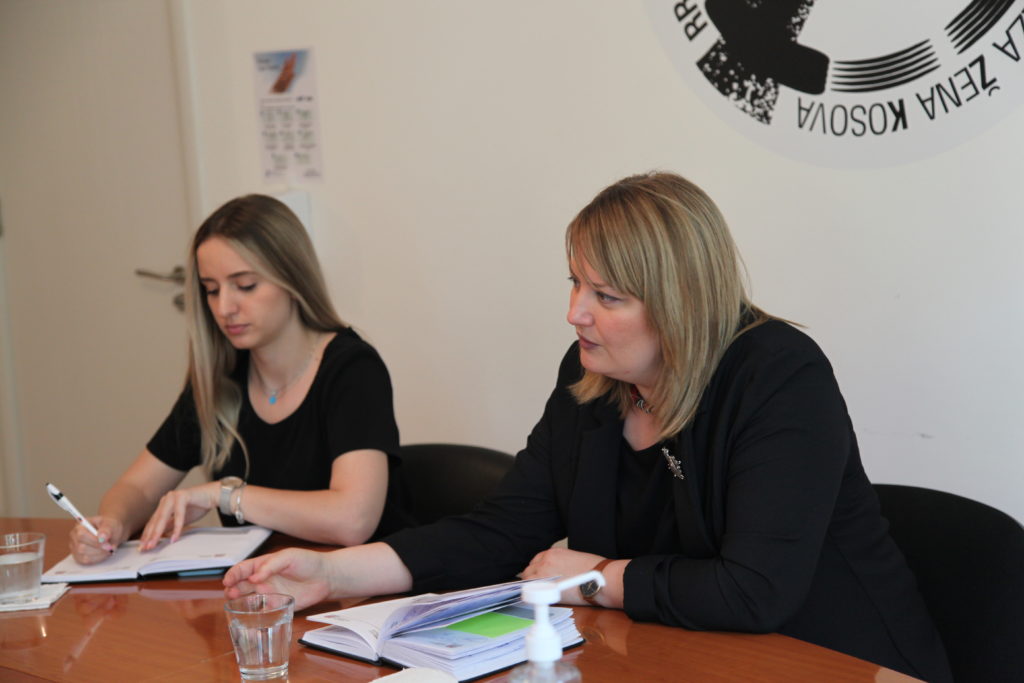
“MESTI will make addressing issues related to various social groups in improving the quality of education and creating a strategic plan 2022 – 2026 its priority”, she added.
The Research Findings and Recommendations for the Ministry of Education, Science, Technology and Innovation are as follows:
Findings:
• Educational curricula include information on domestic violence, buts less on other forms of gender-based violence and the alternative gender roles.
• The Education Information Management System has made it easier to report possible cases of domestic violence, but educational staff are unaware of it and do not use it.
• Educators had minimal knowledge about the different forms of gender-based violence and how to interact with victims of violence. This, coupled with cultural norms, may mean that educators do not always report violence when it occurs, despite their legal obligation to do so. This suggests a need for further mandatory training.
• Schools do not have enough teachers or psychologists to adequately help children in need of additional help. Special government-funded education programs exist for victims.
Recommendations:
• Institutionalize training for educators and psychologists on forms of gender-based violence; how to identify signs of gender-based violence; and how to help and appropriately refer children who have suffered violence.
• Include teaching materials on equality between women and men, mutual respect, non-stereotypical gender roles, gender-based violence and how to report it in educational curricula appropriate for different age groups, as provided by the SC.
• Allocate sufficient budget to increase the number of psychologists in schools.
This meeting was held in the initiative “Further Advancement of Women’s Rights in Kosovo II”, funded by the Austrian Development Agency (ADA) and co-funded by the Swedish International Development Cooperation Agency (Sida).
Read HERE the full report “From Laws to Action”.

